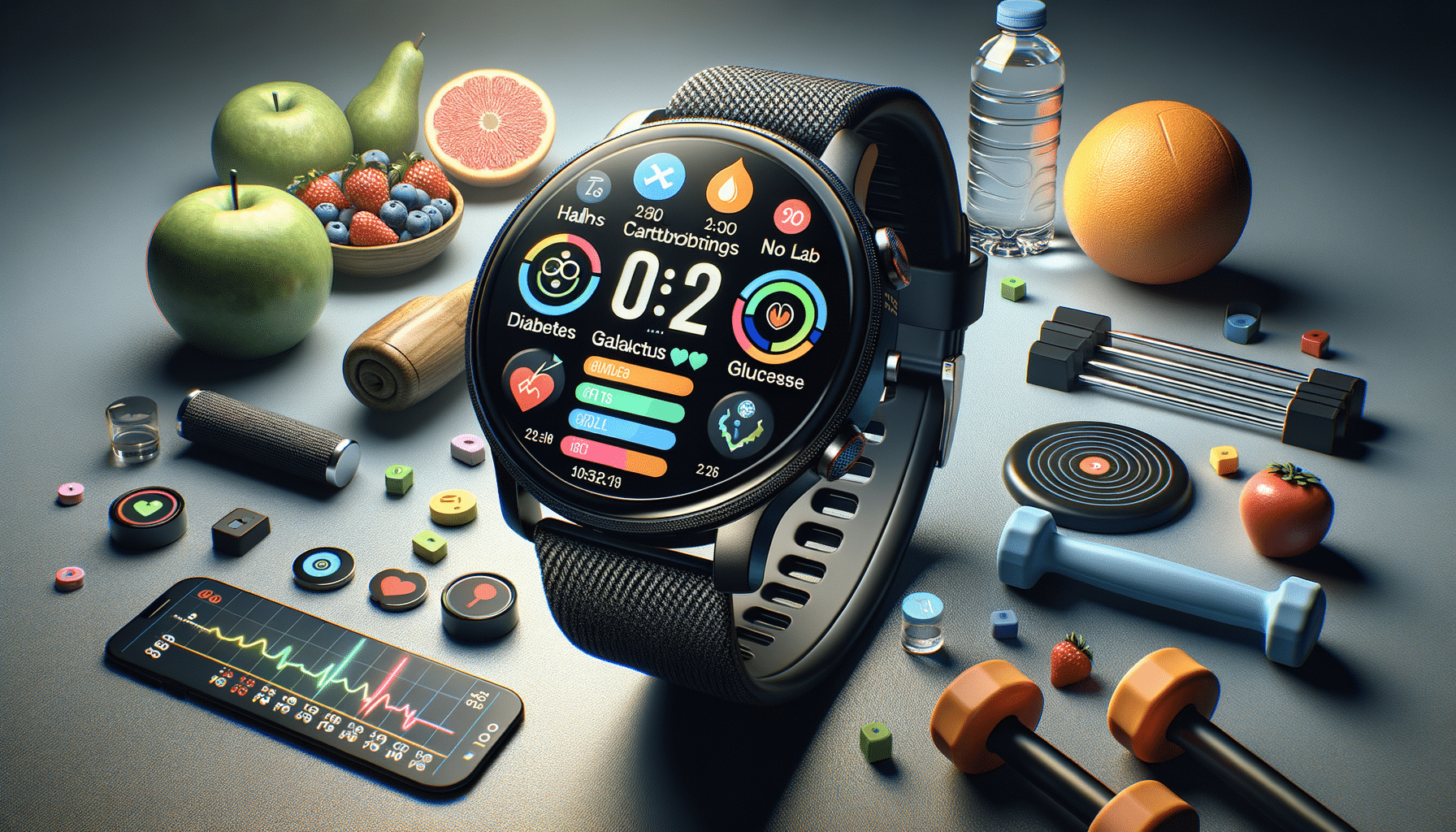
How Smartwatches Can Help People with Diabetes
Introduction to Smartwatches and Diabetes Management
In recent years, smartwatches have emerged as powerful tools in the realm of health and wellness, offering features that extend beyond mere timekeeping. For individuals living with diabetes, these wearable devices can be particularly transformative. The ability to monitor vital health metrics continuously and conveniently is a game-changer, enabling better management of the condition. By providing real-time data on blood sugar levels, heart rate, and physical activity, smartwatches offer a comprehensive solution for tracking and managing diabetes throughout the day.
As technology advances, smartwatches are becoming more sophisticated, integrating sensors that can monitor glucose levels non-invasively, which is a significant relief for those who regularly endure finger-prick tests. This article explores the various ways smartwatches can assist people with diabetes, highlighting their potential to improve quality of life and health outcomes.
Monitoring Blood Sugar Levels with Smartwatches
One of the most critical aspects of diabetes management is maintaining optimal blood sugar levels. Traditionally, this involves regular testing using glucose meters, which can be inconvenient and uncomfortable. However, the advent of smartwatches equipped with advanced sensors offers a promising alternative. These devices can now measure glucose levels through the skin, providing continuous monitoring without the need for invasive procedures.
This continuous glucose monitoring (CGM) capability allows individuals to receive alerts when their blood sugar levels fall outside the target range. Such real-time feedback is invaluable, enabling prompt corrective actions to prevent complications. Many smartwatches also integrate with smartphone apps, offering detailed analytics and trends over time, which can be shared with healthcare providers for more informed decision-making.
While not all smartwatches currently offer CGM, the technology is rapidly evolving, and more models are expected to include this feature in the near future. For now, smartwatches that support CGM systems provide a seamless experience, making diabetes management more manageable and less intrusive.
Tracking Physical Activity and Its Impact on Diabetes
Physical activity plays a crucial role in managing diabetes, as it helps regulate blood sugar levels and improve insulin sensitivity. Smartwatches are equipped with features that track various forms of exercise, from walking and running to cycling and swimming. By monitoring steps taken, distance covered, and calories burned, these devices provide valuable insights into daily activity levels.
For people with diabetes, understanding the impact of physical activity on their blood sugar levels is essential. Smartwatches can correlate exercise data with glucose readings, offering a comprehensive view of how different activities influence blood sugar. This information can help individuals tailor their exercise routines to optimize glucose control and overall health.
Moreover, the motivational features of smartwatches, such as reminders to move and goal-setting options, encourage regular physical activity. This is particularly beneficial for those who may struggle to maintain an active lifestyle, providing gentle nudges to keep moving throughout the day.
Heart Rate Monitoring and Diabetes
Heart health is a significant concern for individuals with diabetes, as they are at a higher risk of cardiovascular complications. Smartwatches equipped with heart rate monitors offer a convenient way to keep track of heart health. By providing continuous heart rate data, these devices help users identify irregularities that may require medical attention.
In addition to monitoring resting heart rate, smartwatches can track heart rate variability during exercise and daily activities. This data provides insights into cardiovascular fitness and stress levels, both of which are important for managing diabetes. Some smartwatches also offer ECG capabilities, allowing users to perform a basic electrocardiogram to detect potential heart issues.
By integrating heart rate data with other health metrics, smartwatches provide a holistic view of an individual’s well-being. This comprehensive approach aids in early detection of potential health issues, enabling proactive management and prevention of complications.
Smartwatch Features for Personalized Diabetes Management
Smartwatches offer a range of features that can be customized to suit the needs of individuals with diabetes. From setting medication reminders to tracking food intake, these devices serve as personal health assistants. The ability to log meals and monitor carbohydrate intake helps users make informed dietary choices, crucial for maintaining stable blood sugar levels.
Furthermore, smartwatches can integrate with various health apps and platforms, allowing users to consolidate their health data in one place. This integration facilitates a more personalized approach to diabetes management, as users can set specific goals and receive tailored recommendations based on their unique health profiles.
In addition to health monitoring, smartwatches offer connectivity features that enhance their utility. Notifications for incoming calls, messages, and calendar events ensure users stay connected without needing to constantly check their phones. This convenience is particularly beneficial for individuals managing diabetes, as it allows them to focus on their health while staying engaged with their daily lives.
Overall, the versatility and functionality of smartwatches make them valuable tools for managing diabetes, offering personalized support and insights that empower users to take control of their health.
Conclusion: Embracing Technology for Better Diabetes Management
Smartwatches represent a significant advancement in the management of diabetes, offering a suite of features that provide real-time insights and personalized support. By monitoring blood sugar levels, tracking physical activity, and keeping an eye on heart health, these devices empower individuals to take proactive steps in managing their condition.
As technology continues to evolve, the capabilities of smartwatches are expected to expand, offering even more comprehensive solutions for diabetes management. For those living with diabetes, embracing these technological advancements can lead to improved health outcomes and a better quality of life.
Ultimately, smartwatches are more than just timepieces; they are essential tools in the journey towards effective diabetes management, providing the support and insights needed to navigate the complexities of the condition with confidence.


